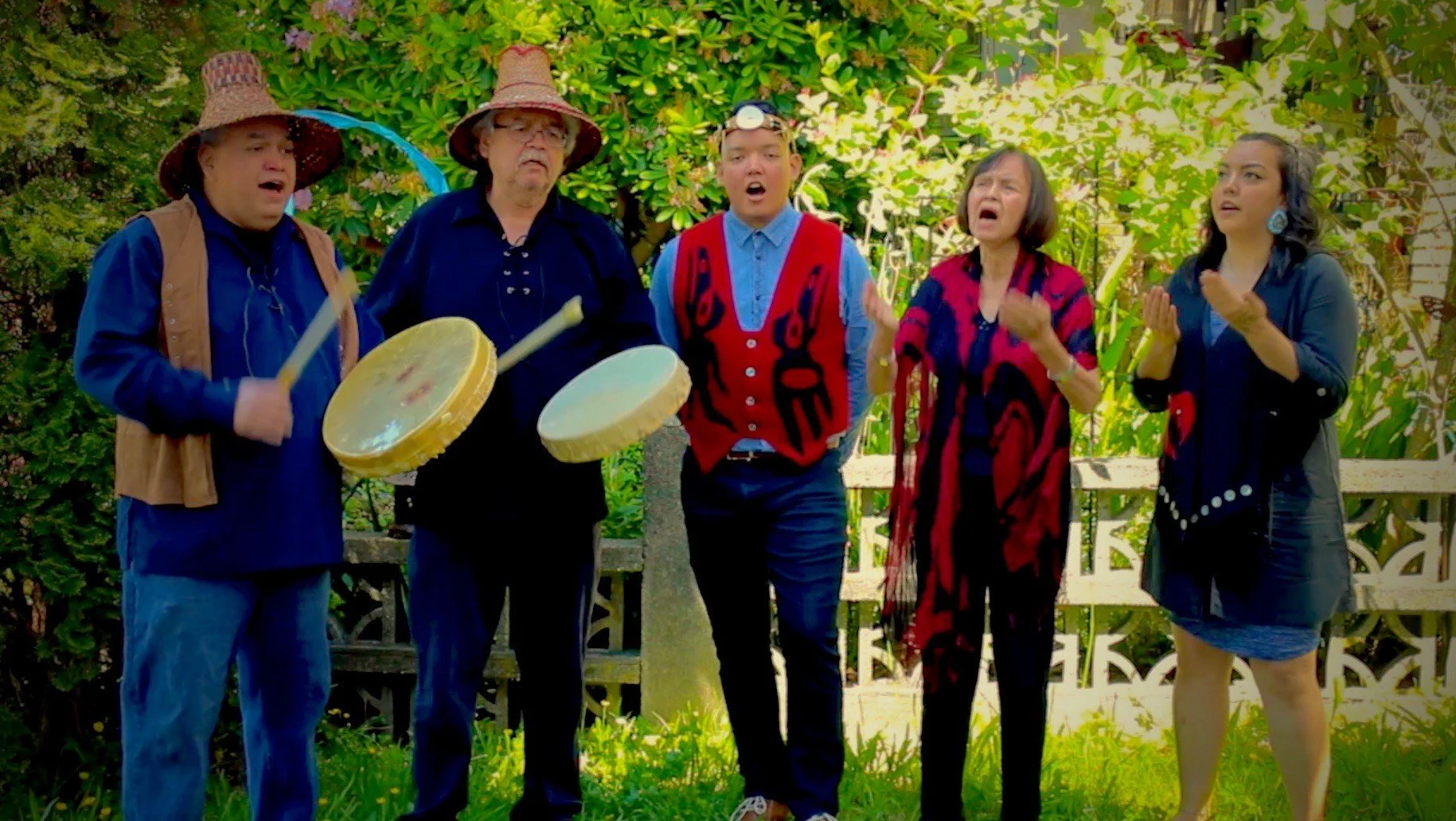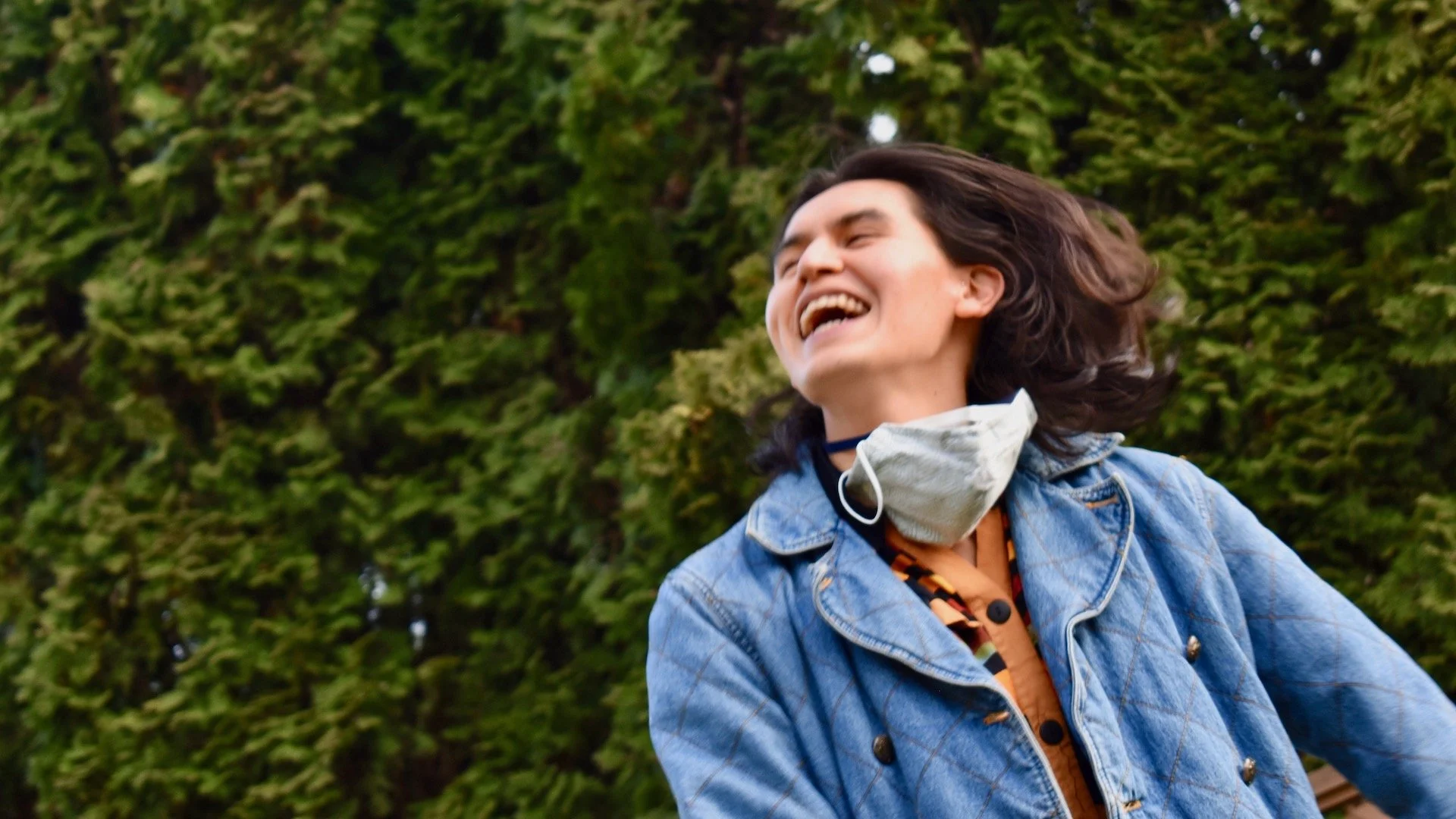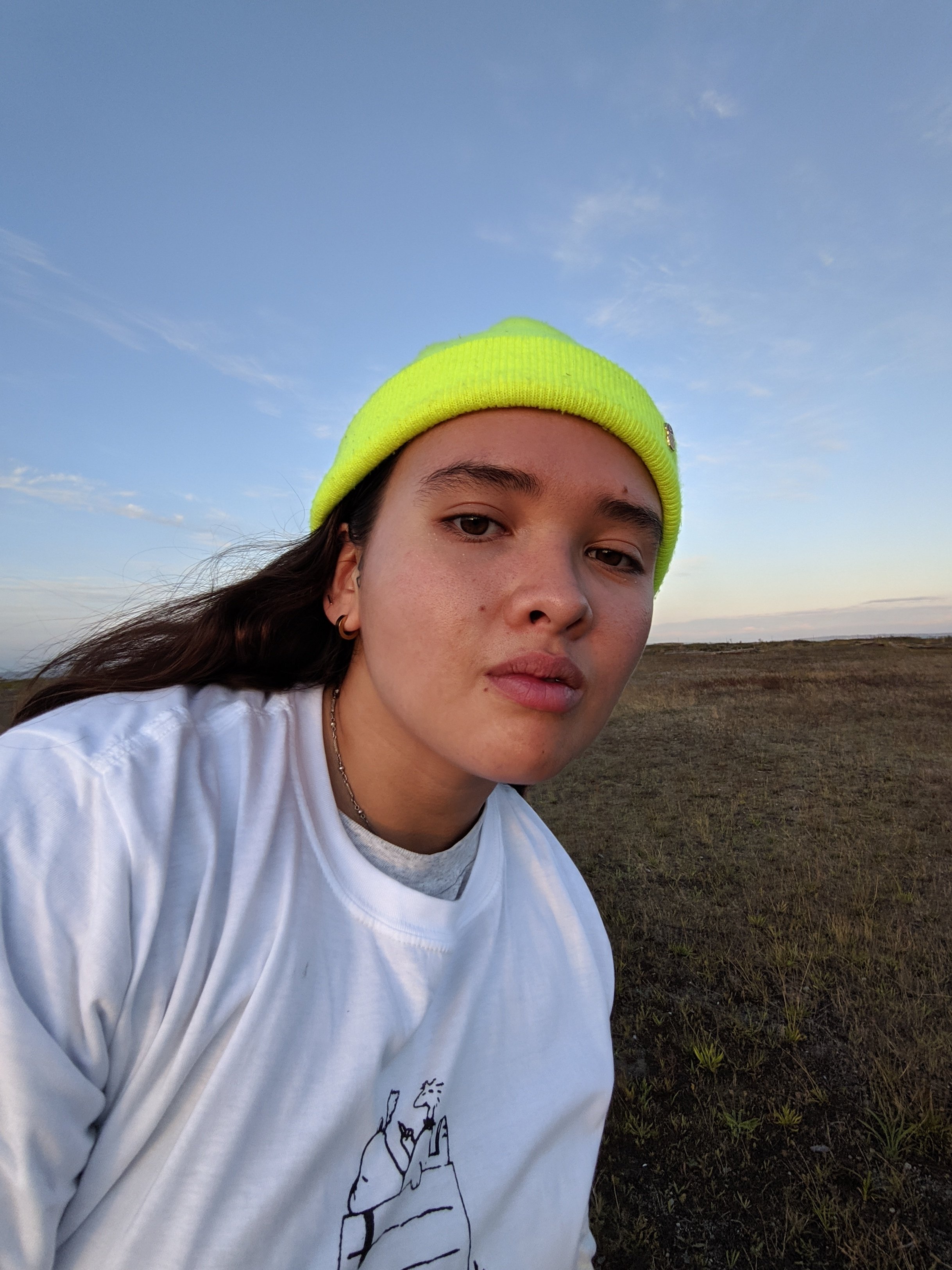Vines Art Festival focuses on land justice through the healing power of the arts
Among the artists taking part in the fest’s We Return: Opening Ceremony are Tzo’kam, Manuel Axel Strain, and Randall Bear Barnetson
Tzo’kam.
Vines Art Festival takes place at various venues from August 3 to 13
MORE THAN 100 visual and performing artists are taking part in the 2022 Vines Art Festival. Now in its eighth year, the free, outdoor fest takes place on “earth stages”—natural, public, everyday spaces—and focuses on land, water, and relational justice. At its very heart is the healing power of the arts.
“Vines is an art-led land justice organization which centres BIPOC folks, and houseless, neurodiverse, queer, trans, and immunocompromised individuals to create art on the land to promote intergenerational healing and create conversations around art that are based in justice, equity, inclusion, and diversity,” says Fanny Kearse, Vines Art Festival’s marketing manager. “In having everything be related to restorative justice and land back and intergenerational healing, having events outdoors in nature is a really beautiful background to have these conversations. To be accessible to everybody not only just in viewing art but hopefully in creating art and being immersed in it, Vines hopes to provide reprieve, rejuvenation, and connection.”
The festival kicks off with We Return: Opening Celebration on August 3 at 6 pm at St'ít'eweḵw'/Second Beach.
“We are coming back to the work that we weave together,” Kearse says. “Together, we come to the opening celebration to witness our living stories, art, and music.”
With ASL interpretation by Season Hunt and Vanessa Coley-Donohue, We Return: Opening Celebration will be emceed by jaye simpson, a Two-Spirit Oji-Cree writer of the Buffalo Clan with roots in Sapotaweyak and Skownan Cree Nation, and Terreane Derrick, a multidisciplinary artist and public speaker who has sat on government boards as a special needs/disability adviser.
The August 3 event begins with a welcome and land acknowledgment with Senaqwila Wyss and Mary Point, the fest taking place on the unceded territories of the xʷməθkwəy̓əm (Musqueam), Skwxwú7mesh (Squamish), and Səl̓ílwətaʔ/Selilwitulh (Tsleil-Waututh) Nations. Wyss is Sḵwx̱wú7mesh Úxwumixw (Squamish Nation), Tsimshian, Sto:lo, Hawaiian, and Swiss, an ethnobotanist and entrepreneur who is completing her bachelor’s degree in communications and First Nations studies at SFU. She co-owns Raven and Hummingbird Tea Co. with her mother, T’uy’t’tanat Cease Wyss. Point is a proud member of the Musqueam Indian Band who works as manager of Indigenous relations at Vancouver International Airport (YVR) and relationship manager for the Musqueam Indian Band–YVR Airport Sustainability & Friendship Agreement.
Manuel Axel Strain.
Among the evening’s performers is Manuel Axel Strain, a non-binary Two-Spirit artist of Musqueam/Simpcw/Inkumupulux ancestry who works in performance art, painting, sculpture, photography, video, sound, installation, and more. Their artworks explores topics such as ancestral and community ties, Indigeneity, labour, resource extraction, gender, Indigenous medicine, land, and colonialism. Their work has been exhibited in the Capture Photography Festival, the Richmond Art Gallery, and Surrey Art Gallery, among other places.
The singing group Tzo’kam, whose name means “chickadee” and “visitors are coming” in the Stl’atl’imx language, will also perform. After elder Flora Wallace participated in the Aboriginal Women’s Voices gathering in Banff in 1997, the family decided to expand their efforts to share their culture and has been singing together at public events for more than 50 years. Tzo’kam’s first major concert was at the Vancouver Folk Music Festival in 1997, opening a stage that featured Buffy Saint Marie and Keith Secola. With three CDs under their name, Tzo’kam has recorded for the Smithsonian Institution and Silverwave Records; under the direction of Russell Wallace, Tzo’kam continues to work within Aboriginal communities and educational settings.
Randall Bear Barnetson offers an art installation called Skwell Sdzi – Sunshine for the heart, created in appreciation of life givers. “The teachings of my Elders have always emphasized respecting and uplifting women in our communities and especially in leadership,” Barneston says an artist’s statement. “Women have inherent strength, resilience, and wisdom. For these reasons and more our Indigenous communities on the Northwest Coast are matrilineal and appointed traditional leadership to women. So we raise our hands in honour to those who exemplify these traits and bring life and light to our families and communities.”
Seema Mehra’s interactive, inclusive Language Banners invites people to use dyes to write on fabric in figurative speech that is specific to their mother tongue. This ongoing community project began in 2008 as part of the Car Free Festival events.
Serisa Fitz-James will be heading a crafts table. The Filipinx-Canadian multidisciplinary artist explores themes of identity, pre-/post-colonial histories of the Philippines, and Filipinx/Canadian relationships through food, comedy, illustration, performance, animation, and ceramic sculpture.
Other featured artists at We Return: Opening Celebration include Kin Balam, Kinfolk Nation, Hampton, Mabel Nahanee, and Skweltapis.
Vines Art Festival is also hosting events such as Forged by Us, led by the artists of the Downtown Eastside (August 4); We, The Many, a queer celebration with drag, music, and dance featuring House of Rice and DJ Nea (August 5); and Resilient Roots, which will highlight a new cohort of Indigenous artists and mentors, featuring mitcholos touchie, Edzi’u, TJ Felix. When We Were takes place on August 12, with artists such as Tonye Aganaba and KeAloha; Our Tended Harvest on August 13 closes the fest with artists Kung Jaadee, Janelle Reid, Mad Riddim. (For a full schedule, see Vines Art Festival.)
Kearse, an emerging poet, explains that she knew she wanted to be a part of Vines after seeing a video from the 2021 event shortly after her move to the West Coast from Saskatchewan.
“I started crying—that’s how deeply the video impacted me,” Kearse says. “I used to tell people I believed I could be part of an organization that puts the people first, not the organization first. Vines really does that.”
















